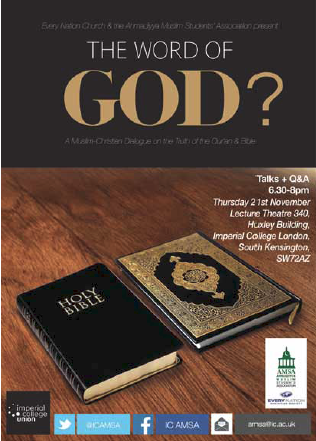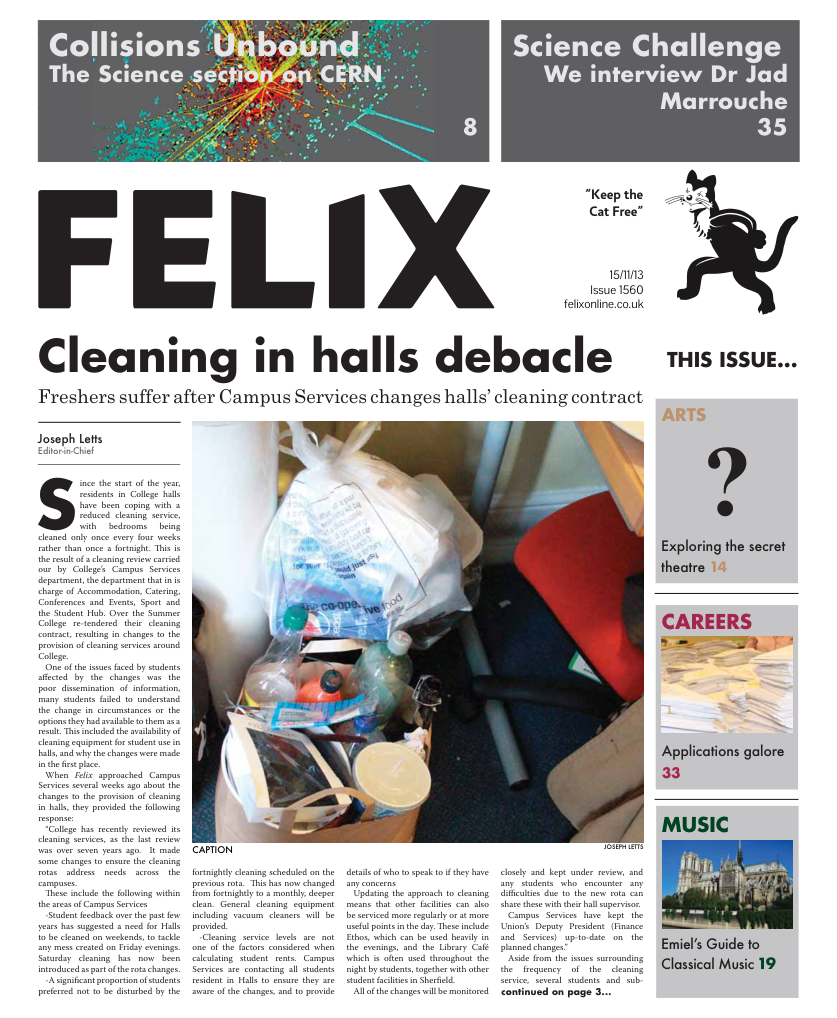Don’t be Agnostic About Interfaith
Umar Nasser, President of Ahmadiyya Muslim Students Association, on matters of interfaith

Next week is National Interfaith Week, established four years ago to bring people of different faiths and beliefs together and build bridges and mutual appreciation between social groups that may not mix on a regular basis. While it hasn’t been ‘celebrated’ or ‘observed’ at Imperial College (depending on one’s Interfaith views) I think that we are foolish to pass up the opportunity- especially when our faith societies are as big as they are. Let us clarify ‘Interfaith’. It is anything that gets people of different beliefs to gather and encourage dialogue and understanding. The spirit underlying interfaith events is not one of hostility. If your conception of interfaith is ‘putting the other party down’ you’re doing it wrong. That doesn’t mean that you cannot discuss controversial or engaging topics. You need something to get people into that room in the first place. (As a few of us have learned the hard way last year, no-one shows up for slightly vague interfaith ‘chats’). It doesn’t mean that you are barred from disagreement (people of different beliefs will disagree on minutiae). It entails a commitment to genuine respect for another’s opinion and a willingness to connect with someone whose beliefs are different to yours. These efforts lead to more similarities, rather than differences, being highlighted; misconceptions are removed. A non-religious colleague (met through interfaith) told me about how meeting a super-feminist woman (clad in headscarf) challenged his preconceptions about said headscarf. We all harbour preconceptions in one form or another. It doesn’t make us bad people but inaction certainly does not make us any better. Interfaith isn’t a luxury. When you’re living in a nation that is as ‘multicultural’ as Britain and when immersed in the international community of Imperial College, having an understanding of others is a necessity. Prejudice is borne out of ignorance and can be remedied by education and exposure to ‘the other.’ As an Ahmadi Muslim, a member of a minority revivalist movement in Islam, I know that there is no better case study for ‘how-not-to-do-interfaith’ than Pakistan, my ethnic country of origin. Ahmadi Muslims are declared non-Muslim in the very constitution of the nation by amendments made in the 70’s and 80’s. If I were to ‘pose’ as a Muslim in Pakistan, through word or deed, I could be subject to fine, three years in prison even death. Ahmadi Muslims are by no means the only sect to be victimised in recent years. Shias, Christians, Hindus, Atheists and others have suffered from intense persecution and discrimination. Year on year the holy month of ‘Muharram’ is vigil to intensified attacks on the Shia population. Hundreds are killed annually by militant organisations. To make things worse, Draconian blasphemy laws stifle any semblance of free speech and perhaps, even more surprisingly, 75% of Pakistanis support them (Pew). One wonders how they would have perceived the Prophet Muhammad when he allowed a visiting Christian delegation to pray in his Mosque. The increasing persecution in Pakistan encompasses a state-sponsored atmosphere of mistrust, a lack of education and an abundance of misinformation. It underlines the fact that, where we can do interfaith, we must. It creates an enabling environment to explore our similarities and differences openly and remove our misconceptions. It teaches us that differences aren’t the problem but that our reactions to them are. The crux of ‘interfaith’ is not the ‘faith’ bit but an open mindset and a willingness to engage. It is something that will go far beyond faith and serve us well in our future lives. The important kernel of ‘interfaith’ is the expression of togetherness that it broadcasts It highlights the humanity common to us all.







